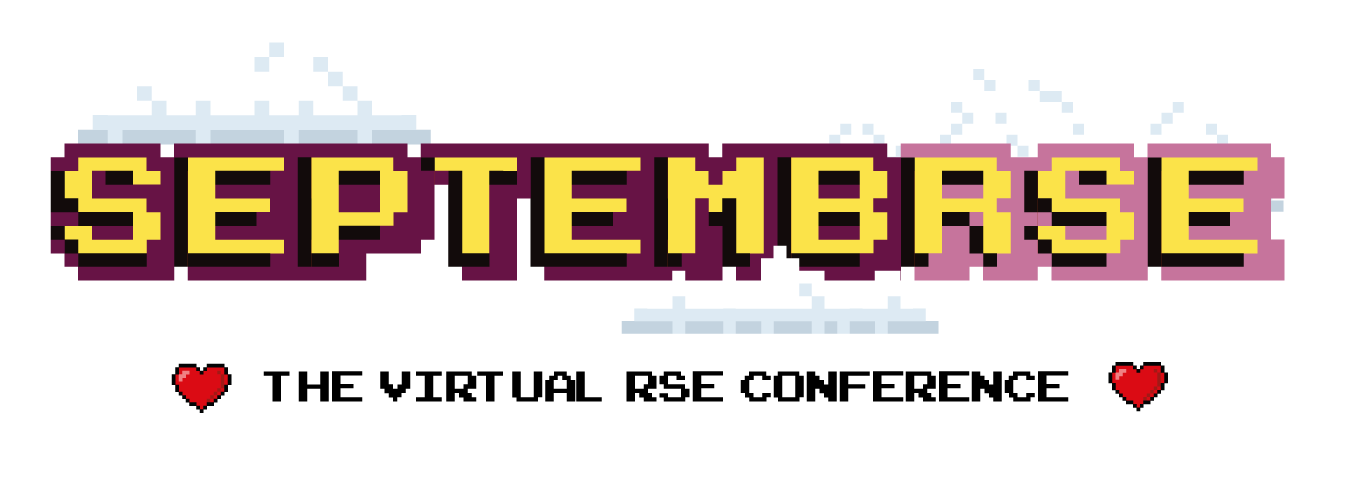What is a Discussion?
Discussions are a new addition to the RSE conference for 2021. As the name suggests, a Discussion is dialogue between a set of participants on a selected topic. Rather than answering questions from the audience (as in a panel), a Discussion should be free-flowing discourse around a topic, e.g. similar to a radio discussion or podcast.
Topics for the discussions should be broad, with a set of participants who can approach the topic from a range of perspectives. The discussion should be moderated by a chair, who will steer the event, ensure all participants are heard, and will make sure that there is time to debate all relevant aspects of the topic.
Call for Discussions process
The Discussions taking place during the conference should reflect the interests of the wider RSE community and include participants who represent diverse viewpoints and backgrounds from across the community.
To ensure this, the call for Discussions will take place in three parts:
1. Proposal of Discussion topics
These will be suggested anonymously via an online form. The topics will be vetted for suitability and relevance by the conference committee. It is expected that most proposed topics will be accepted for the next stage with duplicate topics merged for clarity.
2. Voting on Discussion topics
The RSE community will have the opportunity to vote for the topics they would like to see debated at the conference via an online voting platform. The most popular topics will be selected for the final stage. The number selected will be determined by the number of slots available in the conference schedule.
3. Call for participants
Once the topics have been decided, there will be a call for discussion participants. To apply, the applicant should provide a brief answer or statement about the topic, so that we can then craft these discussions to cover a variety of viewpoints.
Once the topics and participants are selected, the conference committee will approach members of the community to identify chairs for each topic. Recommendations from participants will also be considered.
We will update this page as we progress through each step of the call process. Currently, from the 23rd July, we are asking attendees to apply to participate in a discussion, see next section.
Apply to participate in discussions
Thanks to everyone who submitted and voted for discussion topics. Now that the vote is over, we are excited to announce that SeptembRSE will feature four discussion sessions on the following topics:
- RSE2031: What could (and should) Research Software Engineering look like 10 years from now?
- Industrial Software Development Practices: Do they work in Academia? Should RSEs learn and use them?
- Is testing overkill for most research software? How can we make it easier to test scripts?
- Python is ubiquitous in research, even when it is not the optimal option. When is it worth investing time in a more specialised but harder to learn/maintain programming language?
How to apply
You can now apply to participate in the discussions. Applications for participation are open to everyone – you do not have to be working as an RSE, or a member of the RSE UK Society, in order to participate. We actively encourage those outside of the community to apply in order to add different points of view to our discussions. There are no prerequisites aside from an interest in and enthusiasm for discussing a specific topic.
There is a separate application form for each topic and you may apply to participate in more than one discussion. To apply, open the link next to the topic below and complete the form. Applications close on Friday 6 August.
The application form is very short, requiring a few details (e.g. e-mail, availability during September) and a short statement about what you can contribute to the discussion. Participants will be selected based on what they can contribute, with the aim of crafting balanced and interesting discussions.
- RSE2031: What could (and should) Research Software Engineering look like 10 years from now?
JOIN THE DISCUSSION
- Industrial Software Development Practices: Do they work in Academia? Should RSEs learn and use them?
JOIN THE DISCUSSION
- Is testing overkill for most research software? How can we make it easier to test scripts?
JOIN THE DISCUSSION
- Python is ubiquitous in research, even when it is not the optimal option. When is it worth investing time in a more specialised but harder to learn/maintain programming language?
JOIN THE DISCUSSION
We would like the discussions to represent diverse viewpoints and backgrounds from across the RSE community (and beyond). We therefore ask that you complete the Diversity and Accessibility Form alongside your application to participate (you only need to fill in the Diversity and Accessibility form once, regardless of the number of submissions you make to SeptembRSE). All applications will be reviewed anonymously, and all data will be managed according to our privacy policy.
To help you participate in the conference, we have written an example discussion participant application that you can use as a starting point for your own application.
